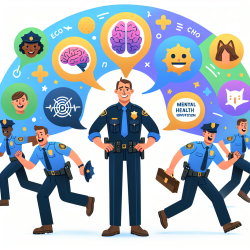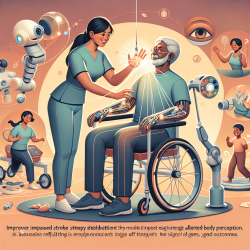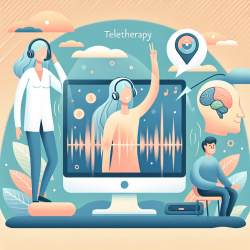The landscape of law enforcement is continuously evolving, especially when it comes to interactions with individuals experiencing mental health crises. Traditional Crisis Intervention Team (CIT) training has long been considered the gold standard for equipping officers with the skills necessary to handle such situations. However, recent research highlights a significant limitation: most CIT training is a one-time event without ongoing education. Enter the CIT ECHO model, a revolutionary approach that provides continuous training and support for law enforcement officers (LEOs).
The CIT ECHO Model: A Game Changer in Law Enforcement Training
The CIT ECHO model was developed by the Albuquerque Police Department in collaboration with the University of New Mexico's Department of Psychiatry and Behavioral Sciences. This innovative program uses videoconferencing technology to connect LEOs with a central hub of CIT experts and psychiatrists for weekly sessions. These sessions are designed to enhance officers' knowledge and skills in handling mental health crises effectively.
The program includes three main components:
- A didactic presentation on topics related to CIT policing or mental health.
- A case debriefing presented by officers, focusing on real-life scenarios involving mental health or substance use.
- An interactive discussion between participants and experts from the hub team.
Key Findings from the Research
The evaluation of 113 weekly CIT ECHO sessions revealed several positive outcomes:
Increased Knowledge
Officers reported significant increases in their knowledge of mental health issues and community resources. The modules on Psychiatric Diagnosis and Substance Use were particularly beneficial, helping officers better understand the complexities of mental health disorders they may encounter in the field.
Enhanced Self-Efficacy
The program also improved officers' confidence in applying what they learned to real-world situations. Participants felt more capable of using de-escalation techniques and determining appropriate interventions for individuals experiencing a mental health crisis.
Positive Attitudinal Shifts
CIT ECHO participation led to more compassionate attitudes towards individuals with mental illness. Officers reported a shift from viewing these individuals as potential threats to recognizing them as victims who need support and understanding.
The Importance of Continuous Education
The success of the CIT ECHO model underscores the importance of ongoing education for law enforcement. Unlike traditional one-time training sessions, continuous education allows officers to stay updated on best practices and adapt to new challenges as they arise. This approach not only enhances their skills but also fosters a more empathetic and informed police force.
A Call to Action for Practitioners
If you're a practitioner looking to improve your skills in handling mental health crises, consider exploring programs like CIT ECHO. Continuous education can significantly enhance your ability to intervene effectively and compassionately. Additionally, further research into models like CIT ECHO can provide valuable insights into improving law enforcement interactions with individuals experiencing mental health issues.










